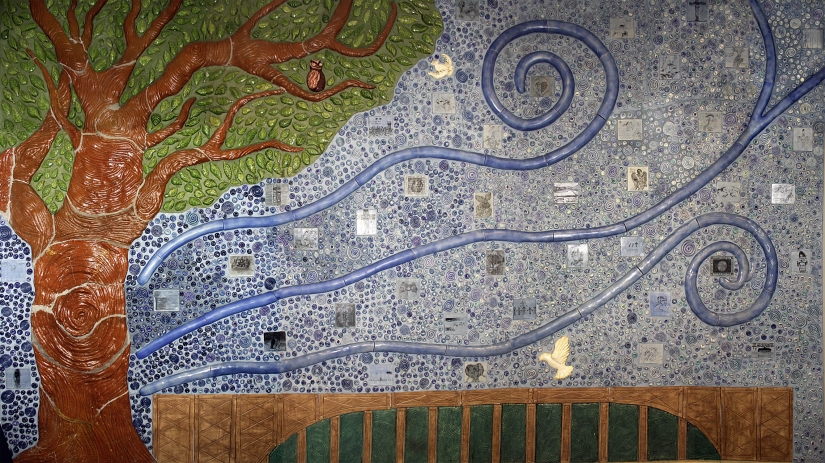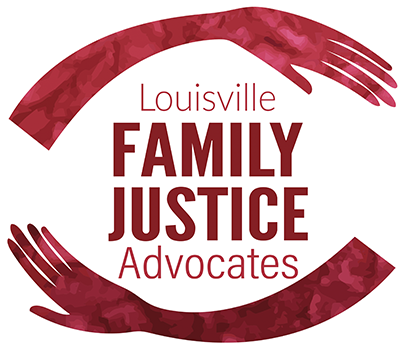
The following letter was written by the Louisville Family Justice Advocates Work Team (Annette Bridges, Leslie Clements, Judi Jennings, Shelton McElroy, LaTonya McNeal, Tony Newberry, Julia Richerson, Savvy Shabazz, All Of Us Or None) and submitted to Louisville Metro Council on June 6, 2021 to call for free phone calls in the Louisville Metro Department of Corrections facility while visitation is suspended due to COVID-19.
Dear Metro Council:
We must acknowledge the humanity of incarcerated individuals and their loved ones because the conditions in which we are born, live, learn, work, play, worship and age have a profound impact on health. And social connectiveness is a key determinant to living a healthy life and healthy families make healthy communities which is something we should all desire (Massoglia & Remster, 2019; Western & McLanhan, 2000). In order to ensure incarcerated individuals and their loved ones are able to experience a sense of social connectiveness and realize the positive recidivism outcomes we all hope to achieve, we recommend the following minimum standards for visitation and phone calls.
It is imperative that Louisville Metro Corrections reopen in-person visitation and in the process establish health standards in order to ensure that incarcerated individuals and their loved ones are able to experience a sense of social connectiveness (Petersen et al., 2019). The physical presence of loved ones is instrumental to people’s sense of connection, identity, and overall emotional wellbeing (King, 1993). Visitation reduces recidivism. In 2011, the Minnesota Department of Corrections conducted a study of 16,420 incarcerated individuals over four years and found that visitation significantly reduced the risk of recidivism. Further, the study suggests visits from siblings, in-laws, fathers and clergy were the most beneficial. Visitation should be in a clean, well-lit space and accommodate the schedules of families. Visitation should be allowed two or more times each week. There should be designated space in the lobby or waiting area to prioritize the physical, emotional and safety of children. Children of incarcerated parents face profound and complex threats to their emotional, physical, educational and financial well-being and visitation with their incarcerated parents provide emotional support as they face these challenges (Fishman, 2008; Turnkey, 2018).
Phone calls should resume with a minimum of one call per day in a private space and should be free. Phone fees disproportionally impact women and children. Women make up almost 90% of family members responsible for call and visitation costs of their incarcerated loved ones and more than a third of the families are in debt because of those costs (Suneta, et al., 2017).
Incarcerated individuals are still members of our society and their presence through visitations and phone calls has a big impact on the emotional well-being of their families and especially themselves. We want to reduce the rate of recidivism. We want families connected as a unit. We hope Louisville Metro Corrections will accept and implement our proposed changes. We care about healthy families in our community and hope you do as well.
Thank you for your consideration.
Sincerely,
Louisville Justice Family Advocates
References
Fishman, S. H., (2008). The impact of incarceration on children of offenders. The Journal of Children in Contemporary Society, 50(1), 89-99. doi.org/10.1300/j274v15n01_11
King, A. E. O., (1993). The impact of incarceration on African American families: Implications for practice. Families in Society, 74, 145-153. doi.org/10.1177/104438949307400302
Massoglia, M., Remster, B. (2019). Linkages between incarceration and health. Public Health Reports, 134, 8-14. doi: 10.1177/003335491986563
Minnesota Department of Corrections. (2011). The effects of prison visitation on offender recidivism. St. Paul, MN: Author.
Peterson, B., Fontaine, J., Cramer, L., Reisman, A., Cuthrell, H., Goff, M., McCoy, E., & Reginal, T. (2019). Model practices for parents in prisons and jails: Reducing barriers for families while maximizing safety and security. Washington, D.C.: Bureau of Justice Assistance and the National Institute of Corrections.
Saneta, d-V., Schweidler, C., Walters, A., & Zohrabi, A. (2017). Who pays? The true cost of incarceration on families. Oakland, CA: Ella Baker Center, Forward Together.
Turney, K. (2018). Parental incarceration and children’s well-being. Future of Children, 28(1), 147-164.
Western, B., McLanahan, S. (2000). Fathers behind bars: The impact of incarceration on family formation. Princeton, NJ: Princeton University.

